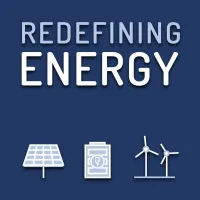View Transcript
Episode Description
Germany is experiencing a battery blitz. The market is expected to triple from 2GW to 6GW in less than two years. To give a bit of context, Zach Williams from Modo Energy, gives us the big picture and fundamentals of the German battery market.
Legacy developers have not yet been able to catch that wave, but newcomers have. We bring on one those new pioneers, Philipp Man, CEO of Terralayr.
In less than three years, Philipp has managed to set up a company which operates or currently builds 150MW of batteries in Germany; more importantly he has managed to sign some of the first tolling agreements with heavyweights such as Vattenfall and RWE. His approach combines medium size batteries (10-30MW) rather than gigantic ones.
The Vattenfall-Terralayr deal is a pioneering seven-year, 55 MW multi-asset capacity tolling agreement for a decentralized fleet of battery energy storage systems (BESS) across Germany, announced in May 2025. Described as an industry-first "virtual battery tolling structure," it marks a significant shift from traditional single-asset tolling models, enabling scalable and flexible energy storage solutions without significant capital investment from Vattenfall.
With Philipp, we dissect his lightspeed approach in a seemingly bureaucratic environment, we analyse how he has been to put assets on the ground so fast, and his approach to commercialisation of flexibility combining hard assets and a digital layer.
We discuss the price formation of tolling agreements, the “tranching” of capacity and how he sees the future. Is Terralayr a tech company? Is it an infrastructure play? Well, a bit of both.
Legacy developers have not yet been able to catch that wave, but newcomers have. We bring on one those new pioneers, Philipp Man, CEO of Terralayr.
In less than three years, Philipp has managed to set up a company which operates or currently builds 150MW of batteries in Germany; more importantly he has managed to sign some of the first tolling agreements with heavyweights such as Vattenfall and RWE. His approach combines medium size batteries (10-30MW) rather than gigantic ones.
The Vattenfall-Terralayr deal is a pioneering seven-year, 55 MW multi-asset capacity tolling agreement for a decentralized fleet of battery energy storage systems (BESS) across Germany, announced in May 2025. Described as an industry-first "virtual battery tolling structure," it marks a significant shift from traditional single-asset tolling models, enabling scalable and flexible energy storage solutions without significant capital investment from Vattenfall.
With Philipp, we dissect his lightspeed approach in a seemingly bureaucratic environment, we analyse how he has been to put assets on the ground so fast, and his approach to commercialisation of flexibility combining hard assets and a digital layer.
We discuss the price formation of tolling agreements, the “tranching” of capacity and how he sees the future. Is Terralayr a tech company? Is it an infrastructure play? Well, a bit of both.
